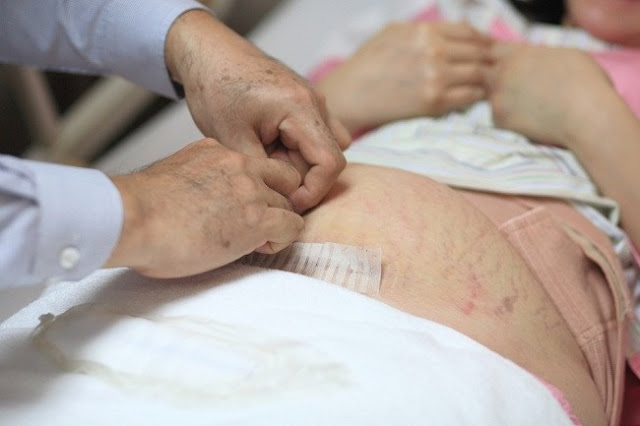Here are some guidelines in assisting children with maple syrup urine disease.
A study shows that pregnant women who every day eat a small piece of chocolate, especially dark chocolate or bitter chocolate, can get the health benefits of improving blood circulation to their fetuses. Another benefit that is no less important is that it can reduce the risk of preeclampsia. In addition, chocolate also has extraordinary antioxidant potential.
Chocolate with higher cocoa content (native cocoa beans) is known to have higher health benefits as well. This type of chocolate is characterized by its relatively more bitter taste. In addition, bitter chocolate is better for overall health because of lower sugar levels.
With new findings about active phenolic compounds in cocoa, bad perceptions about chocolate consumption are starting to change. For a long time, chocolate was attached to bad health news because of its fat content, and chocolate consumption was associated with high blood pressure, obesity, acne, diabetes, and coronary artery disease.
Meanwhile, from the new findings it is known that consumption of chocolate in small portions in pregnant women can bring the following possible benefits.
Reducing the risk of preeclampsia and hypertension
One study found that consuming chocolate in the first or third trimester of pregnancy was associated with a reduced risk of preeclampsia, and was associated with a lower risk of experiencing high blood pressure (hypertension) in the first trimester of pregnancy. Preeclampsia itself is a potentially life-threatening condition, when blood pressure in pregnant women suddenly rises dramatically to dangerous high blood pressure. The results show that pregnant women who routinely consume chocolate 1-3 serving sizes per week have a 50 percent lower risk of preeclampsia during the first trimester.
However, this study has several shortcomings that should be discussed. First, the study interviewed pregnant women less than 16 weeks about how much they consumed chocolate in the first trimester. In other words, the answer is very dependent on the memories of pregnant women whose answers might not be so accurate. Secondly, this study also did not distinguish between dark chocolate and light chocolate in the interview and analysis. This might affect the results obtained.
Effects of bitter chocolate consumption on the risk of preeclampsia
This study departs from the effects of chocolate which can reduce the risk of heart disease. Researchers in previous studies stated that eating chocolate, especially dark chocolate, can reduce the risk of cardiovascular disease. Chocolate contains flavonols which are known to be associated with a reduced risk of cardiovascular disease and a decrease in cholesterol levels. The darker the chocolate, the more it contains flavonols.
Meanwhile, risk factors for preeclampsia are similar to risk factors for cardiovascular disease. Therefore, they then examined whether there was a link between chocolate consumption with a reduced risk of preeclampsia in pregnant women. The study was conducted on nearly three thousand pregnant women with a gestational age of less than 16 weeks. Although this study has been done well, but has not been able to provide strong evidence that chocolate can protect pregnant women from the risk of preeclampsia. Further research is still needed to confirm and explain the protective effect of chocolate on the risk of preeclampsia.
For fetal growth and development
A different study concluded that consuming 30 grams of chocolate per day during pregnancy can be beneficial for fetal growth and development. The study found significant improvements when examining uteroplacental (uterine and placental) blood flow using the Doppler device in mothers who consumed chocolate, both chocolate with high and low flavonol levels. This shows that chocolate can be beneficial for both growth and development of the fetus, as well as a positive impact on the placenta. This increase is far greater than what is usually expected.
The effect of this increase is not solely and directly thanks to the content of flavanols in chocolate. Researchers also have not been able to speculate about the overall effect of chocolate on the risk of preeclampsia from the results of the study because the research subjects were only one group, namely the group of pregnant women who consumed chocolate, so there was no comparison with the group of pregnant women who did not consume chocolate. Therefore, more in-depth research is needed on this matter.
How much chocolate can pregnant women consume?
An obstetrician and gynecology professor said that regular consumption of bitter chocolate in small portions since the first trimester of pregnancy can improve placental function. The small portion in question is 30 grams a day or the equivalent of a few bites.
Eating too much chocolate is also not good for pregnant women because it can increase body weight more than ideal. In addition, there are still many other nutrients that need to be consumed by pregnant women, such as folate, protein, calcium and iron, so do not just focus on chocolate consumption.



Comments
Post a Comment